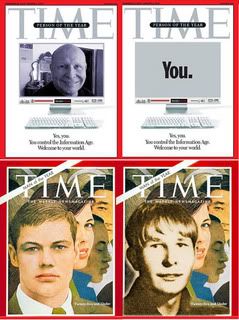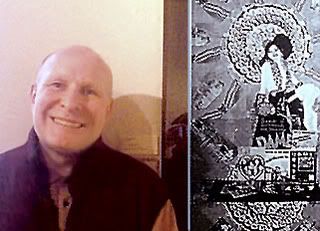Footbarn's Celebration of Theatre: Theater X-Net

Starring: Ida Rubinstein Belle Epoch Russian/Parisian beauty.
Ida's Places in Paris -- from my first jet-lagged day by the Seine.
Read more about Ida in Sisters of Salome by Toni Bentley

Visit: Michael's Montana Web Archive
Theater, Art, Flash Gordon, Funky Music and MORE!
NEW! Spitfires of the Spaceways
Watch Dale Arden rescue Flash Gordon for a change!
Charity Alert: Keep that resolution as Winter settles in. Click on The Hunger Site every day.
In The Community: Flathead Valley Community College had it's annual Christmas party. I was able to go because Art Walk was two weeks earlier, instead of the same night. My boss synthesized a game show called Who Wants To Be A Genius? which was one of the best participatory events I've ever seen in these circumstances. I had a small cameo part as big-voiced "Howie" from Deal Or No Deal. Next year we'll host this "do" in our own building. Speaking of which, the Hockaday Museum of Art is on it's way towards it's OWN addition to the century-old Carnagie Library building which houses us.
Media Watch: Cecil B. DeMented by John Waters was on IFC. I think I've blogged about this film before, but it was shown between jumps to Sunset Boulevard and In A Lonely Place on TCM. All three are movies about the movie industry. C. B. DeMented definitely counts as minor John Waters, but there's a discernably unique spirit in this particular production. I don't have any trouble praising or dismissing Melanie Griffith's acting, and I think she's excellent in this film. (Sam Waterson and Kathleen Turner were also good in Waters' equally preposterous Serial Mom.) A bit of inside humor I missed in previous viewings was gun-toting, gold-bricking Teamsters going after non-union idealists on C.B.'s crew -- fictional porn star Cherish temporarily saves everybody's lives by taking refuge in a skid-row theater, which happens to be showing her movies, and enlisting the assistance of her moaning, ecstatic fans. It's worth noting that Tracy Lords shot two movies with Waters, the making of which gave her a "leg up" out of the sex-movie trade, and led to a much more rewarding career in the entertainment industry at large. Patricia Hearst played the mother of one of C.B.'s crew -- I wonder what she thought about being in a movie whose main plot-point was Melanie (Honey Whitlock) Griffith's kidnapping? Honey's "mainsteam" movie also resembled Cherish's "pornographic" film, with minor exceptions of course. There were many jokes about celebrity and stardom, which both Griffith and Waters know something about, but they were mostly sad jokes.
One kind of misbegotten movie derided by C.B.'s possee has gotta be George Cukor's lugubrious My Fair Lady, also shown on TCM this weekend. Production values aside, it deprived posterity of a visual transcription of the great Broadway hit which made Julie Andrews a star. The chemistry between her and Rex Harrison had to be astonishing, but Audrey Hepburn, for all her talent and beauty, was cynically inserted into the flick as a voiced-over clothes horse. Andrews showed the whole world how excellent an actor she was in The Americanization of Emily. She also showed the gawdamn bean-counters how overwhelmingly popular she could be in Mary Poppins and Sound of Music. Love 'em or hate 'em, Julie Andrews is GREAT in musicals!
Billy Wilder's Sunset Boulevard is sometimes called a black comedy -- maybe it is, but it also counts as a 50's film noir. What Kenneth Anger called "the evil star system" squirms in front of the viewer's eyes as Wilder turns the underside of Hollywood's rock over for a brief moment. C.B. DeMille was very much alive at this time, and I wonder what he thought about the way his name was used in this film. I also wonder if he still socialized with his ex-compatriots Eric Von Stroheim and Gloria Swanson. I will take this opportunity to mention that Andrew Lloyd Weber's musical version of Sunset Boulevard was a triumph on Broadway for first-rate movie actress Glenn Close not too long ago.
In A Lonely Place was made by Humphrey Bogart's production company, and took a couple of risks, considering it was a post-WWII film with an expensive major star. Since it's in black and white, and tells an unpleasant crime story featuring a talented, but violent Hollywood writer (Bogart) it qualifies as yet another film noir. Co-star Gloria Graham was young, beautiful, and sexy -- her husband at the time was also the director of this movie, Nicholas Ray, who made sure the audience knew just how lucky he was. After the show, TCM told a story about Graham divorcing Ray, and marrying his son. Prolific filmmaker Nicholas Ray has been described by others as a "Multi-sexual Hollywood creature." He had a none-too-savory role in the blighted career of Natalie Wood, and goodness knows what else. (As if goodness has anything at all to do with sociopathic power-mongering.)
Another story TCM could have told was how Humphrey Bogart had a wife in the 40's who drunkenly bragged all over Hollywood how she was going to murder him. Bogart wasn't particularly promiscuous by movie star standards, and began his famous lifelong romance with Lauren Bacall after he was safely out of the power of the scary ex-Mrs. Bogart. His character in Lonely Place was a mean drunk, who, though innocent of one certain murder, was a clear and present danger to the ingenue who loved him at first, but learned to fear for her life as she witnessed his repeated rages. Whose life was imitated by who's art? I can't leave this discussion without mentioning Alfred Hitchcock's proto-noir movie Suspicion. It is much less gritty, but has a similar vibe, with another stellar movie actor (Cary Grant) as another contemptible leading man.

Time Magazine's logo and content are property of their copyright holders. This graphic is satirical comment, protected by US law, and is not to be confused with any actual Time/Warner productions.

No comments:
Post a Comment